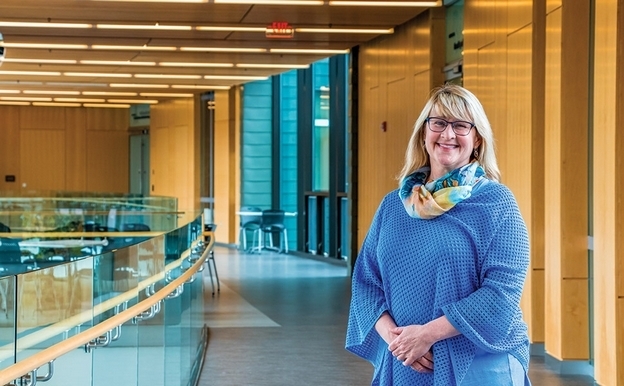Report calls for 'bold investment' in ocean research

A new report from Washington, D.C.-based American Geophysical Union says “bold investment” in scientific research by organizations like the Bigelow Laboratory is needed to effectively respond respond to rising sea levels and ocean temperatures and other changes that will impact coastal communities and their economies. Dr. Charles Colgan, Director of Research at the Center for the Blue Economy is quoted in this article.
“Bold investment” in scientific research is needed to respond to rising sea levels and ocean temperatures and other changes that will impact coastal communities and their economies, according to a new report.
The Washington, D.C.-based American Geophysical Union, a nonprofit that represents 60,000 members in 137 communities, updated its 2005 statement on the importance of ocean research and education as foundations for economic growth with a call for urgent action to respond to a host of climate-related changes in the world’s oceans, which include the expansion of low oxygen zones and changes in the chemistry of the ocean caused by increased carbon dioxide.
“In 2016 in the United States, 52% of the population lived in coastal watershed regions generating nearly 57% of the nation’s gross domestic product,” the nonprofit stated in a summary of its report. “Commercial fishing generates over $36 billion in income and more than 1 million jobs, while recreational fishing supports $14 billion in income and hundreds of thousands of additional jobs. In 2015, over 22% of U.S. domestic oil was produced from coastal and offshore waters.”
The revision was produced by a panel of five American Geophysical Union ocean scientist members, including Charles Colgan, a professor at the University of Southern Maine and a former Maine state economist who now primarily serves as director of research at the Center for the Blue Economy at the Middlebury Institute of International Studies in California.
Reached by phone, Colgan told Mainebiz that the revised statement “reflects the broader set of issues that marine research is dealing with, like climate change and its effects on coasts.”
The statement recognizes that social and economic issues are important in the face of these changes, he said.
“There’s a lot of attention now being given to the vulnerability of coastal communities from sea level rise,” he said. “There are concerns over changes in the lobster industry due to warming sea waters.”
The science is clear, said Colgan, that the Gulf of Maine is one of the fastest-warming ocean regions in the world.
“Lobsters are known to be sensitive to that,” he said. “There’s already substantial evidence that the lobster resource is shifting eastward and northward. It’s largely gone from southern New England. So there’s a lot of concern about what will become of the industry and the communities that depend on it.”
Falling behind the curve
Despite these trends, he said, federal research funding is drying up, making it difficult to monitor, predict and mitigate impacts of climate change sea level rise on coastal communities and activities like fishing and aquaculture.
“So one reason American Geophysical Union put that statement out was to remind people that the issues being dealt with are quite serious,” Colgan said. “The statement was really a kind of platform to tell people to talk with policy-makers and remind them the scientific community is quite worried about all of this.”
For More Information
Read the full article: Report calls for ‘bold investment’ in ocean research
